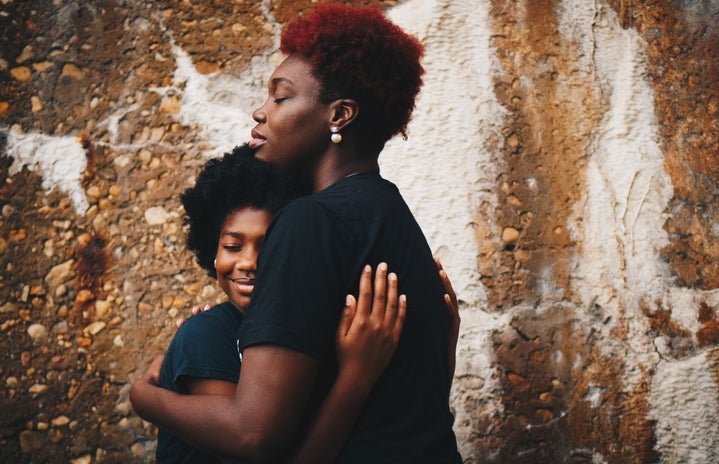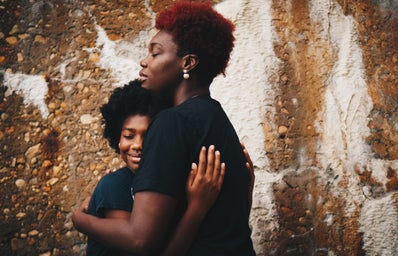The year of 2020 was a period of surprises – and not the good ones. A pandemic made the whole world struggle with deaths and shake with the lack of social interaction. Isolation in order to ensure health security forced entire families to coexist in the same space for all day every day. Homeschooling and home office became the most hated and frequent words ever seen. Which brings us to our conversation today: who were the people in charge of putting kids in front of computers to attend classes? Or doing three meals per day for each one? In fact, those who did everything necessary? I know you know, because we’re talkin about children and taking care of them: women took the harder job.
This pandemic scenario puts in check the reality of a lot of women who are constantly overloaded in all aspects of their lives: at home, dealing with household tasks – which in most cases aren’t shared between partners – and professional life. Now, in addition to this, they have to ensure their kids learn indoors, sometimes also occupying the teaching job too, once ten-year-old children will hardly have maturity and autonomy to pay attention in online classes.
Silvia Federici, a feminist writer and filosopher, once wrote – in her book “Revolution at Point Zero” – about the beauty socially built around motherhood sacrifice: “What they call love, we call unpaid work”. Phrases like “to be a mother is to suffer in paradise” or even “the more tired the mother, the better the child is cared for” translate these years of socialization, training and romantic constructions around a different kind of labor, which makes the whole situation worse, since women feel guilty for being tired. These external influences induce them to think it’s part of their lives being overwhelmed. At the moment, they are working triple than what is considered normal.

This was the case of Nilve Alves, mother and pharmaceutical, who was, at the same time, working with the researching team for coronavirus vaccine and dealing with her daughter that has ADHD (Attention Deficit Hyperactivity Disorder).
She says that “during pandemic, I had to prioritize my profession above motherhood and this frustrated me a lot. I felt less as a mother, since I didn’t have time for anything. And we are facing economic instability, the market is closing – I needed to provide for myself and my family.”
When asked about the inequality in tasks division inside the house, the point is made when she says: “yes, society is walking towards gender equality, however women still earn less than men. So you have a husband who thinks his job is way more important than his partner and doesn’t get involved with his daughter’s necessities, only because he believes his work is the most essential part for house maintenance. Women have to deal with it all: Being a mother, professional, doing the household work – all of this alone. I felt kind of cornered, thinking that if it were only me and my daughter, we would be a lot better.”

Before the pandemic, women already did household work during 18,5 hours compared to 10,3 semanal hours of men – data from IBGE (Brazilian Institute of Geography and Statistics) -, which makes me think: What about today? This surely has increased in a really frightening way. Coronavirus and its consequent quarantine just deepened an existing social problem. What was a gap has become a giant hole. Women are facing heavy times, having to attend the expectations of productivity at their professional lives, taking care of children and the house in full time – an invisible work that is rarely valued.
This fact is proven by our interviewee, who said that “even before pandemic, since I became a mother, feeling overwhelmed turned into a constant thing. Being at the same space with my daughter only increased a condition that was already existent.” The truth is: women are barely dealing with this excess of work. They are passing through this situation with a lot of stress and sometimes their bodies just give up – taxes of burnout (psychological condition characterized for extreme exhaustion) appears in a higher percentage in women, which isn’t a coincidence.
Nilve shows us an internal view of social isolation: “Hidden feelings appeared. I was overloaded before, but my emotions kept sort of balanced. Now, I see myself depressed, stunted in some aspects, feeling like I lost my own space inside home. In the middle of all this, I have to deal with motherhood, the professional side, the absence of father figure and the household tasks.”
If you’re an overwhelmed woman, search for help. You are not obligated to get along with all things alone. Cleaning the house and looking after kids aren’t exclusive femine gender tasks. It’s part of adult life being a functional adult, and it’s time to demand this kind of attitude from men.
—————————————————————
The article above was edited by Karen Oliveira.
Liked this type of content? Check Her Campus Casper Libero home page for more!


